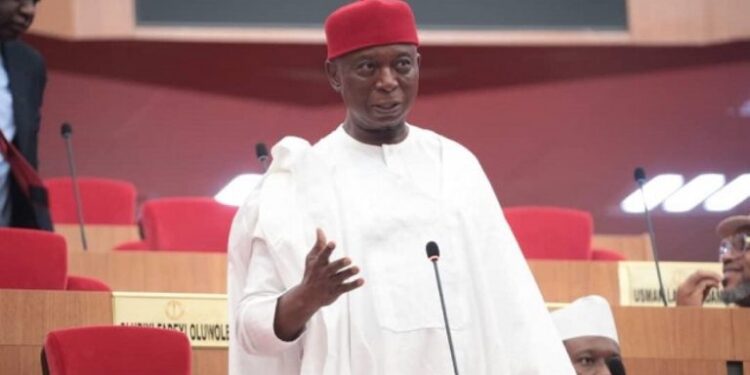Legal redress through international courts will be pursued if necessary, to ensure that justice is served and cultural artefacts stolen from Nigeria are repatriated
Chairman, Senate Committee on Reparations and Repatriations, Sen. Ned Nwoko (PDP-Delta), said this at the maiden meeting of the committee held in Abuja.
Nwoko said that the committee had been saddled with a significant mandate, which includes investigate historical wrongs done to communities and individuals across Nigeria and recommending appropriate reparations.
“Another critical aspect of our work is the repatriation of cultural artifacts that were stolen from Nigeria and are currently held in foreign countries.
“However where necessary, this committee will pursue legal redress through international courts to ensure justice is served.”
Stressing the need for inclusivity, the Nwoko said that the committee would collaborate with traditional rulers, civil society organisations, and international partners, including the United Nations and the African Union.
He also said that public hearings would soon be organised to engage stakeholders and outline the committee’s roadmap.
“Although the formation of this committee came late, but this is a call to service and I totally believe that we will not disappoint the Federal Republic of Nigeria,” Nwoko said.
The lawmaker expressed confidence that the committee would deliver on its mandate with significance and high level of success.
“It is on this note that I seek your unhindered cooperation and understanding as we navigate the water of this very important committee,” he added.
NAN reports that in October 2022, the Nigerian government reclaimed 31 stolen Benin Bronze models from three U.S. Museums after 125 years.
The News Agency of Nigeria (NAN) reports that 29 Benin Bronze artifacts were returned by the Smithsonian National Museum of African Art, one from the National Gallery of Art, and another from the Rhode Island School of Design Museum.
NAN also reports that in November 2022, six artefacts looted by British troops 125 years ago from Benin City, were repatriated to their place of origin.
The objects, including two 16th-century Benin bronze plaques ransacked from the royal palace, were handed to Abba Tijani, the director-general of Nigeria’s National Commission for Museums and Monuments (NCMM), at a ceremony at the Horniman Museum in south London. (NAN)











